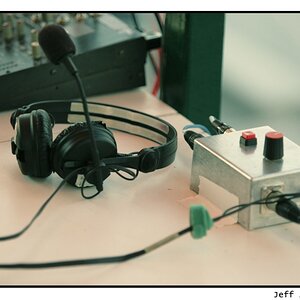voodoocat said:Convenient, fast... yes. Safe. Hell no. Just because something doesn't kill you in one meal doesn't mean it's safe. Considering obesity is the 2nd biggest killer next to cigarettes for preventative illness, I don't think one could call mcdonalds safe. Do you have any idea what mcdonalds does to your body?You may have gripes with McDonalds but the food is convenient, fast and safe unlike food not that many years back.
The main issue with McDonalds is that it's a concentrated food source and as such it's very easy to overeat but that's a consumer problem and not McDonalds.
What do you think McDonalds does to your body?
anyway.. back to the discussion.
That is only one piece to the puzzle. As mentioned before, lenses are needed to resolve the detail. They are unable to. I am no expert on engineering optics... but you can't just "program" a lens to resolve the detail. I imagine you are limited by the imperfections inherent in all glass. Like I said, I am no expert therefore the previous statement was a pontification.The resolving power of film is governed by grain size, think of the grains as pixels. When digital sensors are the size or smaller than film grains then their resolving power will exceed film.
It is possible for extremely high resolution lenses to be made today by careful control of the lens material and forming. Check out the pics the CIA were getting from the early satellites.
That is because the sensor is the size of an APS frame.... Sure the high megapixels make it look smoother (and often times more digital like) but 35mm still resolves more detail than aps sized sensors. I don't doubt digital's ability to make things much smaller and better quality.. but my outlook on it is until we see a major breakthough in lens technology, the fantasy of a tiny sensor rivaling the quality of an 8x10 slide is science fiction.There's quite a few digital cameras that can match 35mm quality already.
Agree with you at this point, for a tiny sensor to rival an 8x10 slide the individual sensors would have to be molecular size, maybe someday, who knows?
Navigation
Install the app
How to install the app on iOS
Follow along with the video below to see how to install our site as a web app on your home screen.

Note: This feature currently requires accessing the site using the built-in Safari browser.
More options
You are using an out of date browser. It may not display this or other websites correctly.
You should upgrade or use an alternative browser.
You should upgrade or use an alternative browser.
Medium and large format cameras...a dying breed?
- Thread starter Jim Walczak
- Start date
santino
No longer a newbie, moving up!
- Joined
- Jun 17, 2004
- Messages
- 2,299
- Reaction score
- 54
- Location
- Austria, heart in Poland -->
- Website
- www.artofart.com
ksmattfish said:malachite said:MF and LF film shooters and cameras will remain forever just as vinyl LP's and 45's have. Might become scarce but the nostalgia will never go away........
No kidding. I regularly use MF and LF cameras that are 50+ years old. People are not going to be using 10Ds in 50 years.
God Matt, you think the same way as I do
mygrain
Friend to nose goblins everywhere
- Joined
- Aug 11, 2004
- Messages
- 3,660
- Reaction score
- 25
- Location
- in a cool dry place
- Can others edit my Photos
- Photos NOT OK to edit
core_17 said:I highly doubt people will still be using 10D's in 50 years. Digital technology moves too fast...it will long be oblsolete.
I agree with C. I mean the 20D has been out for how long? which means the 10d is the old dog with the same ole tricks. And again as I had mentioned earlier I don't think I have an electronic piece of equipment that has lasted 10 years except maybe my alarm clock(which happens to be the bane of my existence.)
mygrain
Friend to nose goblins everywhere
- Joined
- Aug 11, 2004
- Messages
- 3,660
- Reaction score
- 25
- Location
- in a cool dry place
- Can others edit my Photos
- Photos NOT OK to edit
Ant said:Big Mike said:On another note...there are digital medium format cameras.
Like this: :shock:
http://www.hasselblad.se/products/level3.asp?secId=1135&itemId=3362
This camera has been haunting my dreams ever since I linked to it...THANKS!!!!

Jamie R said:Hi there,
I'm back from the wet rainy hills. Thankfully my view camera didn't short-circuit. Now that I'm cosy and safe behind (or in front of?) my computer screen, I'll have all the time to composite a few terrible images on photoshop in the rain.
Okay...a few responses to your points:
"Wrong! Advances in technology automatically means smaller (or larger), finer and generally better else it would not be an advance"
I wonder if this opinion could be justified. I'd love to hear why it's wrong. What's said is not an argument for technology and quality having any relationship. If defining McDonalds as the epitome of quality works for you, I'll have to leave you to enjoy your beefburger in peace
I just explained why it's wrong, by it's very definition it's not an advance unless something improves.
I don't believe I defined McDonalds as the epitome of quality, you appear to have claimed I did.
The length of this thread is devoted to the question of whether medium and large format cameras are a dying breed: arguing that digital has got to the resolution power of 35mm film
(now that Technical Pan is discontinued?) doesn't address the question of "why" many photographers won't be ditching medium and large format kit. In the example I stated that the new Hasselblad 22megapixel camera still failed to resolve anywhere as close as the detail of medium and large format film using fine grained film which is equivalent to 72Megapixels of camera when drumscanned. That's why I feel "Digital just isn't there yet."
And you're absolutely right!
It may very well be an elitist argument, but it's an unfair world. My camera is way bigger than yours. A heck of a lot bigger. My tripod is way bigger than yours. My film bags are way bigger than yours. And my lenses! Whoo! Don't even try and imagine how big these are! I know it's a paltry male thing to be comparing sizes, but when it comes to quality, the small widdler of a 6MP just doesn't compare. Fancy helping me carry all this heavy kit sometime?
We agree! At present digital can't begin to compare with medium or large format but will it? I bet it will and in the not too distant future.
Look on the brightside, with all that kit you lug around, not only do you get super high resolution images you also get a good work-out!
" Moore's law, simply stated, says that the number of transistors in a microprocessor will double every 18 months."
The problem is that the above is simply stated without thought about the future developmental limitations of digital. Thus far, and no further? Go one step further. The number of transistors doubles and rises exponentially: " technology advances in exponential leaps." And What happens at critical mass? Wake up!
I don't understand what you mean by "critical mass", the number of transistors (or more correctly "switching elements") in a microprocessor has absolutely nothing to do with nuclear fission reactions and your exclamation to "wake up!" smacks of technophobia.
One analogy: cancer cells in an organism can stay undetected for years as their 'growth' doubles over a period of time. At critical mass, a threshold is reached when the organism crumples under the loaded mass of the cancer's exponential growth. TThe organism then deteriorates rapidly. Comparing digital to cancer isn't necessarily a helpful analogy, however the result of exponential development is limited: it is unfounded to believe that technology can keep on developing exponentially without limitations.
Comparing digital to cancer is a ridiculous analogy and another sign of technophobia.
It is logical that technology cannot keep developing exponentially but the limits aren't in sight yet.
"You're correct in that there's always a market for "cheaper" but there's a far greater one for "better".
Young idealism has its virtues, but also needs to believe in progress and improvement in the face of adversity..
Wish I was a young idealist but thanks for the compliment!
History counters us otherwise: 35mm film was invented by Leica for convenience in an era of bulkier, higher quality medium format kit. The marketing was impeccable, and the 6x6cm folding camera died by the late 1950's. Today the marketing is still there: fancy a custom made green alligator skinned Leica MP for a 35mm camera costing a quarter the price of a digital one?
So why didn't it sell? Obviously it didn't meet a market need.
The problem of blowing pixels is never going to affect the majority: just the minority. And the problem will become more apparent over years: something which is inevitable when technological products fail. Trying to get a quote to fix my Kodak 14 megapixel camera for a blown pixel which shows up: the bright spot shows up especially when images are interpolated through enlargement. This isn't an argument against digital: it's a reason to stay with medium or large format which is more reliable out in the hills. The last quote I had for mine was £3000 to repair the sensor (and it wasn't just dust on the sensor either).
"The classic "strawman" argument. How many 6Mp cameras have that problem today (not that you'd notice it anyway)"
I love the agricultural reference; hicks do!
It's not an agricultural reference, check your dictionary.
I'm not doing a survey either. Firstly 6MP cameras aren't medium format quality let alone large format. A snapshooter getting 6x4cm prints from his 6MP won't notice. Once you start wide-format printing 40"x50", 6MP isn't going to fill even the lower bottom corner of your print and hold any quality. I'm thinking too that this point is focussing only on resolution: to say nothing about tonal rendition: colour balance: bokeh and contrast.
Definitely agree that 6Mp doesn't cut it for large high quality prints and even the 14Mp or 22Mp's have their limitations but the day is coming when digital will compete with medium and large format, it's just not there yet.
A 6MP is a fine start for any photographer, but life doesn't end with the number of pixels you have. It's fine to be enthusiastic about the new purchase of a 6MP toy, but think wide: think large. Think large format
"Maybe you're already there? Laughing"
I'm smiling at that
Have a good day too. I'm not out to anti-dgitise anyone btw - I've tried it, but it just doesn't work for me: other medium and large format users reflect the same findings, although the advertising hype to abandon film is very seductive.
Best wishes.
I hope you too have a very good day and enjoy your photography!
Ant
TPF Noob!
mygrain said:Ant said:Big Mike said:On another note...there are digital medium format cameras.
Like this: :shock:
http://www.hasselblad.se/products/level3.asp?secId=1135&itemId=3362
This camera has been haunting my dreams ever since I linked to it...THANKS!!!!
I think it's the price that's haunting.....$23,000 :shock:
The good news is that thanks to the way digital technology is going we'll all be able to afford one in ten years

mygrain
Friend to nose goblins everywhere
- Joined
- Aug 11, 2004
- Messages
- 3,660
- Reaction score
- 25
- Location
- in a cool dry place
- Can others edit my Photos
- Photos NOT OK to edit
Ant said:mygrain said:Ant said:Big Mike said:On another note...there are digital medium format cameras.
Like this: :shock:
http://www.hasselblad.se/products/level3.asp?secId=1135&itemId=3362
This camera has been haunting my dreams ever since I linked to it...THANKS!!!!
I think it's the price that's haunting.....$23,000 :shock:
The good news is that thanks to the way digital technology is going we'll all be able to afford one in ten years


ksmattfish
Now 100% DC - not as cool as I once was, but still
- Joined
- Aug 25, 2003
- Messages
- 7,019
- Reaction score
- 36
- Location
- Lawrence, KS
- Website
- www.henrypeach.com
- Can others edit my Photos
- Photos NOT OK to edit
GerryDavid said:People might be using 10D's in 50 years, assuming the elctronics will hold up. People are still using camera's today from 50 years ago, and consider it to be artistic or nice to use basic cameras. In 50 years, if the camera still works, the 10d will still produce images that are large enough to print at a fair size. And by then they may have anthorisms *spelling?* to make it even larger. :0)
core_17 said:I highly doubt people will still be using 10D's in 50 years. Digital technology moves too fast...it will long be oblsolete.
I don't think the electronics of a modern DSLR (or modern electronic film SLR) will hold up as well as the mechanics of a camera from 50 years ago. I also agree that the digital technology itself is changing so fast that over the course of 50 years I think it would be difficult to maintain softeware and hardware compatability.
But besides that, the reason I use a 50+ year old Rolleiflex (and a few other oldies) is that while the camera itself is old, I can go out and purchase the most modern film to use in it. I can use the latest film image capturing and processing technology with the old gear.
With a 10D you are always stuck with the image capturing technology built into it in 2004. If I had to use film from the 1950s with my Rollei, I might not be such a big fan of it.
I do hope that digital camera systems become more modular like medium format film sytems. I want to be able to invest in a lens and body system where I can easily and economically upgrade the software and sensor hardware as technology increases.
GerryDavid
No longer a newbie, moving up!
- Joined
- Sep 18, 2003
- Messages
- 1,221
- Reaction score
- 9
- Location
- Virginia
- Can others edit my Photos
- Photos NOT OK to edit
Problem with dslr's is the current versions will always be thousands of dollars. Even if you were to buy a 3mp one from how ever long ago that was, say 4 or 5 years, its still not cheap. You can probably get a current 4 or 5mp p&s camera for less.
And I have electronics that have lasted 10 years or more. :0) a portable cd player from 1992 that still works *most of the time, just needs a cd cleaner*, nes from 1986 or so that usually works, super nintendo from 1991 that always works, etc, hehe.
48 years, 23 hours, 59 minutes and 35 seconds *if only I posted this faster, it would have been an even number, hhe* to go. *smirks*.
And I do tend to agree with everyone, I doubt a dslr would last 50 years, but there would be people to fix it then and upgrade the electronics, for a hobbist. :0)
And I have electronics that have lasted 10 years or more. :0) a portable cd player from 1992 that still works *most of the time, just needs a cd cleaner*, nes from 1986 or so that usually works, super nintendo from 1991 that always works, etc, hehe.
48 years, 23 hours, 59 minutes and 35 seconds *if only I posted this faster, it would have been an even number, hhe* to go. *smirks*.
And I do tend to agree with everyone, I doubt a dslr would last 50 years, but there would be people to fix it then and upgrade the electronics, for a hobbist. :0)
Zoolfoos
TPF Noob!
- Joined
- Oct 20, 2004
- Messages
- 93
- Reaction score
- 0
- Location
- CT
- Can others edit my Photos
- Photos NOT OK to edit
Yes, it is true that photography is rapidly changing with all the capabilities that digital cameras are giving us. But, I believe that film photography will always be around, or at least for quite a while more. There's just something "special" about working with the film in the darkroom. I find it to be very relaxing. The darkroom is the "primitive photoshop," It's an important part of photographic history. Somehow developing your film and printing it yourself is just so much more satisfying than putting it on a computer.
To be quite honest, the only reason I have a digital camera was because I wanted something small. My little Nikon Coolpix 3200 isn't what I generally use for my serious work (although I do occasionally catch a good photo or two with it ) ... It's more of a goof off camera. Much more "pocket friendly" than my Nikon FM.
) ... It's more of a goof off camera. Much more "pocket friendly" than my Nikon FM.
To be quite honest, the only reason I have a digital camera was because I wanted something small. My little Nikon Coolpix 3200 isn't what I generally use for my serious work (although I do occasionally catch a good photo or two with it
 ) ... It's more of a goof off camera. Much more "pocket friendly" than my Nikon FM.
) ... It's more of a goof off camera. Much more "pocket friendly" than my Nikon FM.- Joined
- Feb 5, 2004
- Messages
- 21,168
- Reaction score
- 110
- Location
- North Central Illinois
- Website
- corryttc.blogspot.com
- Can others edit my Photos
- Photos NOT OK to edit
ksmattfish said:GerryDavid said:People might be using 10D's in 50 years, assuming the elctronics will hold up. People are still using camera's today from 50 years ago, and consider it to be artistic or nice to use basic cameras. In 50 years, if the camera still works, the 10d will still produce images that are large enough to print at a fair size. And by then they may have anthorisms *spelling?* to make it even larger. :0)
core_17 said:I highly doubt people will still be using 10D's in 50 years. Digital technology moves too fast...it will long be oblsolete.
I don't think the electronics of a modern DSLR (or modern electronic film SLR) will hold up as well as the mechanics of a camera from 50 years ago. I also agree that the digital technology itself is changing so fast that over the course of 50 years I think it would be difficult to maintain softeware and hardware compatability.
But besides that, the reason I use a 50+ year old Rolleiflex (and a few other oldies) is that while the camera itself is old, I can go out and purchase the most modern film to use in it. I can use the latest film image capturing and processing technology with the old gear.
With a 10D you are always stuck with the image capturing technology built into it in 2004. If I had to use film from the 1950s with my Rollei, I might not be such a big fan of it.
I do hope that digital camera systems become more modular like medium format film sytems. I want to be able to invest in a lens and body system where I can easily and economically upgrade the software and sensor hardware as technology increases.
That's pretty much what I wanted to say, I'm just not smart enough to say it. Thanks Kmattsfish!!!!
"People might be using 10D's in 50 years, assuming the elctronics will hold up. People are still using camera's today from 50 years ago, and consider it to be artistic or nice to use basic cameras. In 50 years, if the camera still works, the 10d will still produce images that are large enough to print at a fair size. And by then they may have anthorisms *spelling?* to make it even larger. :0)"
That's 'algorithms' perhaps?
I notice there are people who still use mechanical 110 format cameras today. Kodak automated disc cameras?? Haven't seen anyone use one of those in the past 5 years. Has anyone else? Maybe there will be a cult early digital users group with cameras of less than 20 megapixels which pursue the lost art of digital photography with limited resolution in less than 20, not 50 years
Many thanks - I had a good weekend after the rain let up.
I guess these posts pretty much answer the posters questions on whether medium format and large format is a dying breed? :
It's hard not to find it a bit bizarre to say anyone using the internet can smack of being a 'technophobe'. This is a bit of a knee-jerk reaction by digiphiles when limits to technological advances are mapped out.
The problem with technology is that its advances are beguiling and its adherents tend to be overzealous about its claims. There is a limit to technological advance and its application to humane society. Critical mass theory and the effect of critical mass from exponential growth (such as Moore's transistors) reflects the outcome of doubling growth: whether it be in cancerous cells; economic booms. The analogy of critical mass effects is only ridiculous if the outcome is difficult to believe.
"It is logical that technology cannot keep developing exponentially but the limits aren't in sight yet."
It depends on what sort of limit is referenced. In this thread, we have discussed the limits of the lens resolution; the limits of having a maximum number of megapixels on a CCD before cost outweighed market forces and the limits of disposable income and the limits of pursuing higher resolution on a digital medium when even higher resolution is already available on film.. The limits are already in sight for those of us who don't have £19K to spend on a new inferior resolving capture medium which does not attain what large format already does at a fraction of the price.
On an offshoot about strawmen....the context for strawmen was etymologically agricultural around the times of harvests and certain pagan festivals before TS Eliot brought them into the consciousness of city people who were mostly indifferent to the burning of strawmen. To proclaim something as hollow, implies that the statement is not. Strawman, hollowman or not, I'm off to have a hot bowl of pasta
Best wishes and have a good week. 8)
That's 'algorithms' perhaps?
I notice there are people who still use mechanical 110 format cameras today. Kodak automated disc cameras?? Haven't seen anyone use one of those in the past 5 years. Has anyone else? Maybe there will be a cult early digital users group with cameras of less than 20 megapixels which pursue the lost art of digital photography with limited resolution in less than 20, not 50 years
Many thanks - I had a good weekend after the rain let up.
I guess these posts pretty much answer the posters questions on whether medium format and large format is a dying breed? :
It's hard not to find it a bit bizarre to say anyone using the internet can smack of being a 'technophobe'. This is a bit of a knee-jerk reaction by digiphiles when limits to technological advances are mapped out.
The problem with technology is that its advances are beguiling and its adherents tend to be overzealous about its claims. There is a limit to technological advance and its application to humane society. Critical mass theory and the effect of critical mass from exponential growth (such as Moore's transistors) reflects the outcome of doubling growth: whether it be in cancerous cells; economic booms. The analogy of critical mass effects is only ridiculous if the outcome is difficult to believe.
"It is logical that technology cannot keep developing exponentially but the limits aren't in sight yet."
It depends on what sort of limit is referenced. In this thread, we have discussed the limits of the lens resolution; the limits of having a maximum number of megapixels on a CCD before cost outweighed market forces and the limits of disposable income and the limits of pursuing higher resolution on a digital medium when even higher resolution is already available on film.. The limits are already in sight for those of us who don't have £19K to spend on a new inferior resolving capture medium which does not attain what large format already does at a fraction of the price.
On an offshoot about strawmen....the context for strawmen was etymologically agricultural around the times of harvests and certain pagan festivals before TS Eliot brought them into the consciousness of city people who were mostly indifferent to the burning of strawmen. To proclaim something as hollow, implies that the statement is not. Strawman, hollowman or not, I'm off to have a hot bowl of pasta
Best wishes and have a good week. 8)
ksmattfish
Now 100% DC - not as cool as I once was, but still
- Joined
- Aug 25, 2003
- Messages
- 7,019
- Reaction score
- 36
- Location
- Lawrence, KS
- Website
- www.henrypeach.com
- Can others edit my Photos
- Photos NOT OK to edit
In 50 years, if the camera still works, the 10d will still produce images that are large enough to print at a fair size. And by then they may have anthorisms *spelling?* to make it even larger. :0)"
That's 'algorithms' perhaps?
The thing with image enhancing software, algorithms, fractels, or whatever they are using and calling it, is that the technology can be applied to any image whether originally digital or film. If any particular program can make it possible to enlarge a 2000x3000 image up to 20"x30", then imagine what it could do with an 8000 ppi scan of a 4"x5" or 8"x10" piece of film.
santino
No longer a newbie, moving up!
- Joined
- Jun 17, 2004
- Messages
- 2,299
- Reaction score
- 54
- Location
- Austria, heart in Poland -->
- Website
- www.artofart.com
btw. I think that 35mm color film is a dying breed. It's quality is worse than slide film + good digital (IMO) and it's kinda expensive. Hope that 35mm b&w will last as long as it can.
Jeff Canes
No longer a newbie, moving up!
- Joined
- May 19, 2003
- Messages
- 6,194
- Reaction score
- 28
- Location
- Hollywood, FLA USA
- Website
- www.pbase.com
- Can others edit my Photos
- Photos OK to edit
santino said:btw. I think that 35mm color film is a dying breed. It's quality is worse than slide film + good digital (IMO) and it's kinda expensive. Hope that 35mm b&w will last as long as it can.
That not an opinion it a fact when it comes to consumer film
Similar threads
- Replies
- 2
- Views
- 991
- Replies
- 21
- Views
- 2K
- Replies
- 3
- Views
- 133

![[No title]](/data/xfmg/thumbnail/38/38266-292dc43125dad0d89dbd806503618171.jpg?1619738549)
![[No title]](/data/xfmg/thumbnail/38/38264-552eb428d8a704186dcc43400f417d0f.jpg?1619738548)




![[No title]](/data/xfmg/thumbnail/36/36423-4f4abd5f32da2219d4967c7a13b07a8c.jpg?1619737566)
![[No title]](/data/xfmg/thumbnail/37/37111-64f64f2c8371420041bf39244ff12117.jpg?1619737882)

![[No title]](/data/xfmg/thumbnail/38/38265-4b75e7e05f8bf906800580ac7f7ddf60.jpg?1619738549)
![[No title]](/data/xfmg/thumbnail/37/37114-2bba6b6cc4df1fe53588503fb35af8dd.jpg?1619737883)
